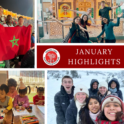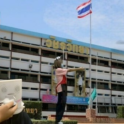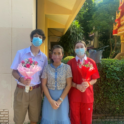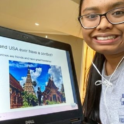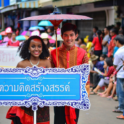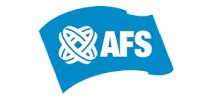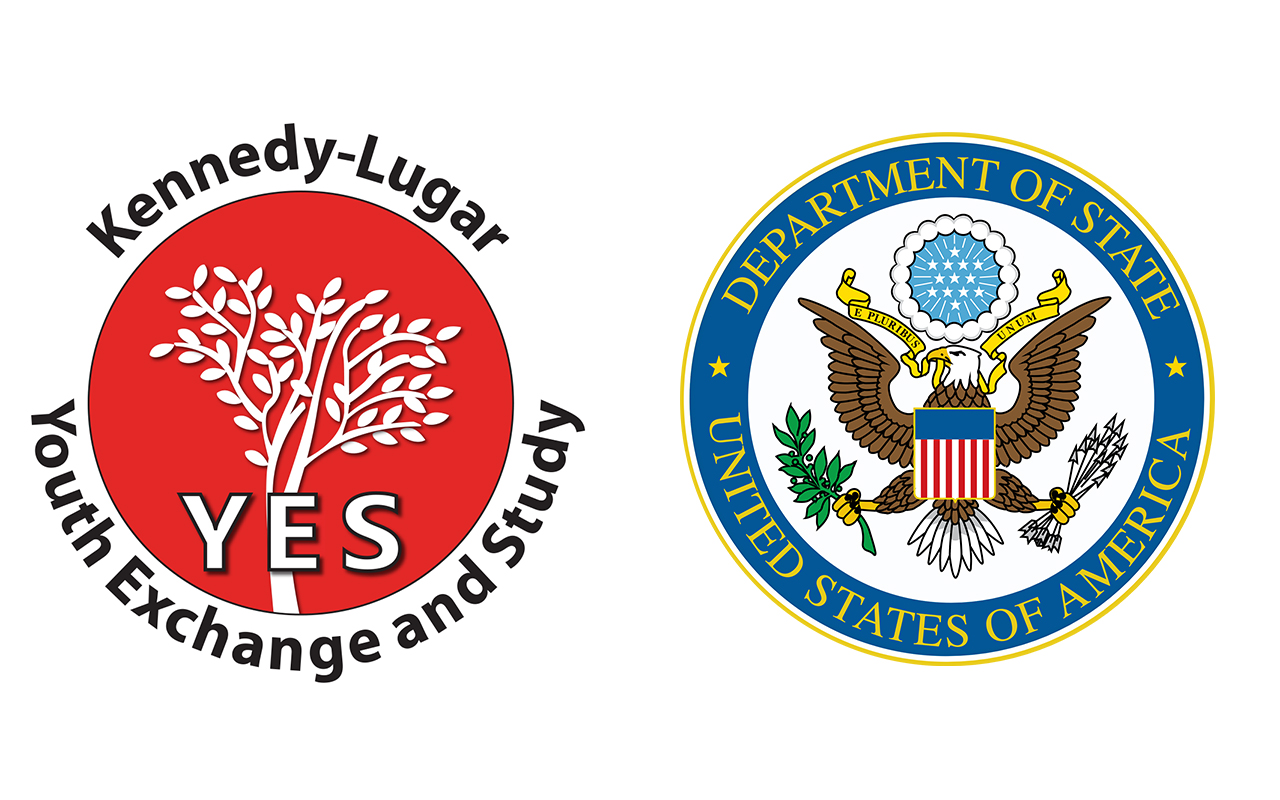Thailand
Study in THAILAND with YES Abroad!
Thailand, a constitutional monarchy, is the only Southeast Asian country that has never been occupied by a European nation. The population is mostly Thai, though there is a significant minority of Chinese as well. The majority of the country is Buddhist, though there is a Muslim population largely focused in the southern tip of the nation and small populations of Muslims residing throughout the country. While Thai is the official language, English is the secondary language for the well-educated elite. Thailand is a mostly rural country, but the urban population has been slowly increasing, particularly in the capital city of Bangkok. The country’s tropical climate varies in intensity and is punctuated by a wet and dry season. Thailand's regions vary significantly in the diversity of their geography; the north is covered in lush mountains; the northeast consists of a plateau, bordered by the Mekong River; a flat river valley makes up the center of the country; and the south widens into the Malay Peninsula from a narrow isthmus and is famous for its beaches. Tourism contributes significantly to Thailand's economy, which has seen growth over the past decade.
As with most countries, Thailand's cuisine reflects its tradition and culture. Each dish tries to balance the four main taste senses: sweet, sour, bitter, and salty. Thai food is known for being spicy, but varies significantly by region. Fruit is commonly served at the end of meals. Ethnic groups, religions, regional cultures, and tourists all collide in Bangkok. A colorful city, it is packed with cultural destinations like the National Museum, historical destinations like the Temple of the Reclining Buddha, and many malls and markets offering food and entertainment.
A more subtle shock to the senses, though a significant cultural difference from the United States nonetheless, is Thailand's malleable sense of time. Rather than pressing the need for short-term results and instant gratification, Thai people generally see success as something to be achieved over a lifetime and seek to build on their ancestors’ goals in conjunction with setting goals for the shorter-term future. It is not uncommon for a meeting, an appointment, or a get-together with a friend to begin an hour after the scheduled time. This tardiness is anticipated by Thais and is a natural element of Thai culture.
Most host communities are urban, suburban, small towns, or rural, and while some host families may own a car, the most common forms of transportation include cars, taxi, vans or micro-vans, busses or micro-busses (including songthaew trucks) , tuk-tuk, motor-scooter, boat taxi, mass-transit train, pedicab, bicycle, and walking. Students typically commute anywhere between 20 and 60 minutes each way by private car, van, bus (including micro-bus and songthaew trucks), motor-scooter, bicycle, or walking to their host schools.
Learn more about being a YES Abroad student in Thailand:
Host Family
Students will live with host families in order to experience true immersion in the local culture. Families are selected based on recommendations by members of the local community, and each is carefully screened by AFS staff and volunteers. Families are carefully vetted through a thorough application process and are highly regarded by their relatives and neighbors. While each family is highly regarded by their neighbors, host family situations and accommodations vary, and each provides a unique experience for each student. Host communities exist through the presence of a strong support network, with a local volunteer, staff member, or "liaison" available to each student hosted.
Your High School
Students will attend public high schools. The primary language of instruction will be Thai. School typically runs Monday to Friday, and uniforms are customary. Students may have the opportunity to participate in a number of extramural and extracurricular activities, such as Thai arts, dance, cooking, boxing, and various musical instrument lessons.
The Political & Security Environment
The United States enjoys good relations with Thailand. Thailand is an active member in organizations such as ASEAN, the UN, and the WTO.
For more information, visit the CIA World Factbook.
Health & Safety
With a more than 60-year presence in Thailand, AFS draws on strong local connections, and deep understanding of the intercultural, health, safety, and security issues. Students are given safety briefings by AFS staff and are registered with the U.S. Embassy in Bangkok to receive travel alerts. AFS works closely before arrival and throughout the exchange year to discuss and prepare for students’ well-being. Students are supported on the ground by AFS staff members and volunteers. Each student is given a mobile phone upon arrival for emergency use, along with the contact number for the local support representative and the national AFS Thailand office. YES Abroad students are covered by medical and political and security evacuation benefits. Students, host families, and natural families have access to a 24-hour emergency number, and AFS staff and volunteers are trained to deal with incidents that may occur on-program.
For further information on Thailand, visit the U.S. Department of State's website.
Enrichment Activities
Students may have the opportunity to take part in various activities to increase their interaction with local peers in Thailand. Activities may include field trips, sporting events, cultural excursions, social outings, and community service projects. Examples of previous enrichment activities include:
- Meeting with the Public Affairs Section of the U.S. Embassy;
- Community service activities, such as volunteering to teach English to children with limited resources;
- Learning traditional dance and Thai cooking techniques;
- Participation in a massage camp, meditation camp, or Thai boxing camp.


